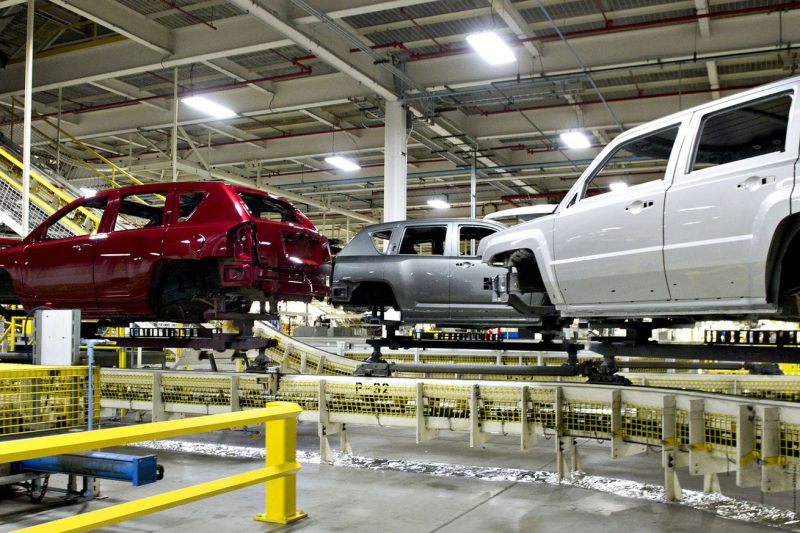
Reviving America’s Future: Transforming Shuttered Auto Plants into EV Factories with $1.7 Billion Biden Program
The automotive industry is witnessing a significant shift towards electric vehicles (EVs) as the world strives to reduce carbon emissions and combat climate change. Shuttered auto plants across the United States are being repurposed and reimagined as EV factories, thanks to the infusion of funds from the $1.7 billion Biden administration program. This initiative not only brings new life to these abandoned facilities but also fosters innovation and job creation in the green energy sector.
Michigan, a state with a rich automotive history, has been at the forefront of this transformation. The state’s once-flourishing auto plants, which were left idle due to changing market demands, are now being revitalized to produce cutting-edge electric vehicles. This transition is not only beneficial for the environment but also crucial for the local economy, as it provides employment opportunities for residents and bolsters the manufacturing sector.
The infusion of funds from the Biden program enables these shuttered auto plants to undergo necessary upgrades and modifications to cater to the production of EVs. Advanced technologies and machinery will be installed to ensure the efficient and sustainable manufacturing of electric vehicles. This modernization not only aligns with the global shift towards clean energy but also positions the United States as a key player in the electric vehicle market.
Moreover, the repurposing of shuttered auto plants as EV factories highlights the importance of adaptive reuse in the industrial sector. Instead of demolishing these facilities and constructing new ones, repurposing them for EV production minimizes waste and maximizes the utilization of existing infrastructure. This approach not only saves resources but also preserves the historical significance of these sites, paying homage to their automotive heritage.
The conversion of shuttered auto plants into EV factories also underscores the collaborative efforts between the government, industry stakeholders, and local communities. By harnessing public-private partnerships, these initiatives can drive sustainable growth, create jobs, and propel the transition to a cleaner, greener future. This synergy between various entities demonstrates the collective commitment towards environmental stewardship and economic prosperity.
In conclusion, the transformation of shuttered auto plants into EV factories represents a significant milestone in the automotive industry’s evolution towards sustainable practices. Through strategic investments and collaborations, these facilities are being revitalized to produce next-generation electric vehicles, thereby contributing to a cleaner environment and a thriving economy. This innovative approach not only underscores the resilience and adaptability of the automotive sector but also sets a precedent for industrial redevelopment with a focus on green technologies.
